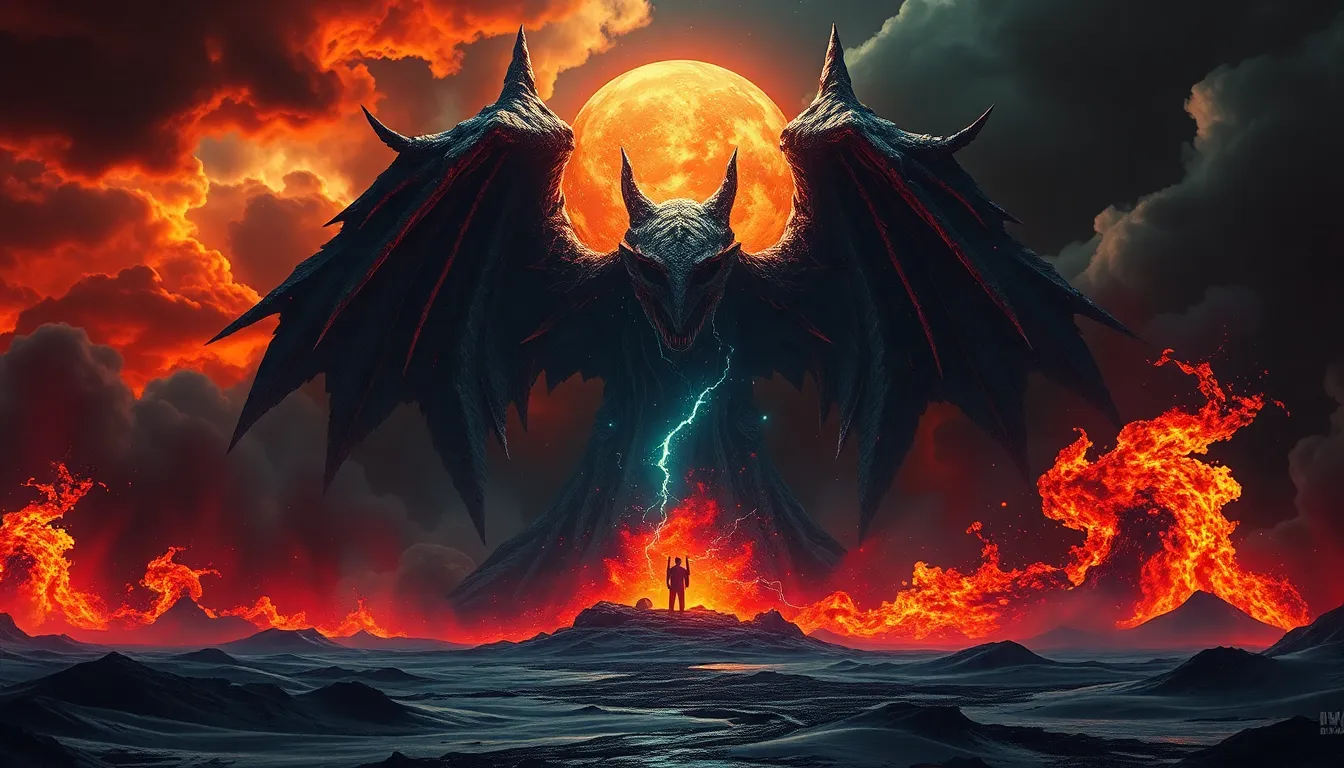Doomsday Myths: How They Reflect Our Society
Introduction to Doomsday Myths
Doomsday myths encompass a wide array of beliefs and narratives that predict catastrophic events leading to the end of the world or civilization as we know it. These myths have been prevalent in human history and are rooted deeply in our cultural consciousness.
Historically, doomsday myths have served as both warnings and reflections of societal values, fears, and the collective psyche. From the ancient prophecies of the Maya to the modern predictions of technological collapse, these narratives provoke thought about our place in the universe and the consequences of our actions.
The Origins of Doomsday Myths
The origins of doomsday myths can be traced back to ancient texts and prophecies. Many cultures have created narratives that foretell an apocalypse, often tied to significant celestial events or moral failings of humanity.
- Ancient Texts: Sacred scriptures often contain apocalyptic visions, such as the Book of Revelation in Christianity or the Hindu concept of Kali Yuga.
- Mythology: Various mythologies, including Norse and Greek, incorporate end-of-world scenarios that reflect the societies’ values and fears.
These narratives are frequently influenced by religion, as they provide a framework for understanding humanity’s relationship with the divine and the moral order of the universe.
Psychological Underpinnings of Doomsday Beliefs
Doomsday beliefs are deeply rooted in human psychology. They often stem from fear, anxiety, and existential dread that arise from uncertainty about the future.
- Fear and Anxiety: The unpredictable nature of life can lead people to seek explanations and narratives that provide a sense of control.
- Cognitive Biases: People may exhibit confirmation bias, focusing on information that supports their apocalyptic beliefs while dismissing contrary evidence.
This psychological framework helps explain why some individuals and groups cling to doomsday myths, believing they are inevitable outcomes rather than mere possibilities.
Doomsday Myths in Modern Society
In contemporary society, doomsday myths have evolved, influenced by technological advancements and mass media. Events such as Y2K and the Mayan calendar prediction for 2012 are notable examples of how these myths manifest in modern times.
- Y2K: The turn of the millennium sparked widespread fear of technological collapse, leading to significant preparations and ultimately, an anti-climax.
- Mayan Calendar: The belief that the Mayan calendar predicted the end of the world on December 21, 2012, gained traction, highlighting the contemporary fascination with apocalyptic predictions.
Technology and media play crucial roles in disseminating these myths, often amplifying fears through sensationalism and misinformation.
Cultural Reflections in Doomsday Narratives
Doomsday myths often reflect the cultural values and fears of the societies that propagate them. These narratives can illuminate collective anxieties regarding social, political, or environmental issues.
- Societal Values: Myths may highlight what a culture deems morally acceptable or unacceptable, serving as cautionary tales.
- Collective Trauma: Events such as wars or natural disasters can shape doomsday narratives, becoming part of a society’s collective memory.
In this way, doomsday myths serve as a mirror reflecting the complexities and concerns of human society.
Environmental Concerns and Doomsday Predictions
As environmental issues become increasingly pressing, ecological doomsday scenarios have gained prominence. Predictions surrounding climate change, species extinction, and resource depletion often evoke apocalyptic imagery.
- Climate Change: Many believe that unchecked climate change will lead to catastrophic consequences for humanity and the planet.
- Extinction Events: The potential for mass extinctions due to human activity raises fears about the future of biodiversity.
This intersection of environmentalism and apocalyptic thinking underscores the urgency of addressing these global challenges while also reflecting societal fears about humanity’s impact on the planet.
Political Implications of Doomsday Myths
Doomsday narratives also have significant political implications. They can influence political discourse, shaping public perception and policy decisions.
- Political Discourse: Politicians may invoke doomsday myths to rally support for particular policies or initiatives, framing issues as existential threats.
- Apocalyptic Rhetoric: Campaigns and movements sometimes leverage apocalyptic language to motivate constituents, creating a sense of urgency around their agendas.
These narratives can serve to mobilize populations, but they can also create division and fear, complicating efforts to address pressing societal issues.
The Role of Religion in Doomsday Narratives
Religious beliefs often play a pivotal role in shaping doomsday narratives. Eschatological beliefs across various religions provide a framework for understanding the end times.
- Christianity: The Book of Revelation offers vivid imagery of an apocalypse, influencing Christian eschatological thought and behavior.
- Islam: Islamic teachings regarding the Day of Judgment similarly emphasize moral accountability and the consequences of one’s actions.
The impact of these religious doomsday myths can be profound, influencing societal behavior and moral frameworks, often providing adherents with a sense of purpose and urgency.
Media Representation of Doomsday Myths
Media plays a crucial role in shaping and disseminating doomsday myths. Films, literature, and news coverage often amplify these narratives, influencing public perception and fear.
- Films: Movies such as “The Day After Tomorrow” and “2012” dramatize apocalyptic scenarios, embedding these fears into popular culture.
- Literature: Dystopian novels often explore themes of societal collapse and survival, reflecting contemporary anxieties.
- News Coverage: Sensationalist reporting on environmental disasters or geopolitical tensions can exacerbate doomsday fears.
The interplay between media and public perception illustrates how cultural narratives are shaped and reshaped in response to societal fears.
Conclusion: Understanding Our Society Through Doomsday Myths
Examining doomsday myths provides valuable insights into the human condition and societal dynamics. These narratives reflect our deepest fears, values, and anxieties, highlighting the complexities of our collective psyche.
To foster resilience and hope in the face of societal challenges, it is essential to critically examine these beliefs and understand their origins and implications. By doing so, we can better navigate the uncertainties of the future and work towards a more sustainable and harmonious existence.



